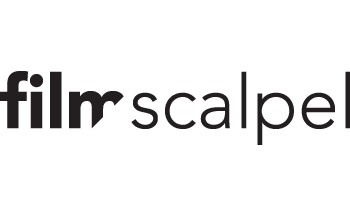Knowing Sounds
The Cinematologists is a film podcast hosted by Dario Llinares and Neil Fox. Each episode delves into one particular film and does so at length and in great detail. The film is screened for an audience with an introduction by its two academic hosts, who also conduct a discussion after the screening in which the audience members are active participants. In addition, other scholars but also filmmakers, writers and actors are invited onto the show.
The podcast comes highly recommended, but episode 32 in particular is a must-listen. Knowing Sounds is an hour-long program that discusses the potential of the podcast format as an academic practice. (You can find it on iTunes, on Player FM or on the show’s website).
This episode is divided into three distinct segments. The first one plays like a best-of montage of soundbites from older shows. It’s an evocative collage of scholarly remarks, film excerpts and audience interventions. (The active role of the live audience in this podcast is one of its strong points, bridging the divide between film fans and film academics by engaging them in direct conversation).
The second section (which starts around the 23:45 mark) is arguably the best. This spoken analysis looks into the academic potential of the podcast, touching on a broad range of topics and bringing up a wealth of stimulating ideas. Llinares and Fox discuss their own modus operandi, and how they rely on what they call the “cinematic imagination” to compensate for the lack of images in a podcast: since we are so accustomed to imagining things cinematically, the creative use of sound suffices to kickstart our visual imagination. This paradox of addressing an audiovisual art form (film) in an aural format (podcast) actually works to the advantage of the format, they argue. It makes the listener work harder and thus contribute more to the whole process. Again, they aim to activate the audience with their choice of format. Llinares and Fox also touch upon the academic resistance to alternative forms such as the podcast. They (rightly) hope to elevate the podcast above a mere delivery mechanism and develop it into a viable form of academic research.
In addition, this second part of the episode is peppered with examples of best practices heard in other podcasts (from You Must Remember This to Bret Easton Ellis’ often provocative podcast). These examples and interviews with other podcasters touch on a series of thought-provoking topics. Take Malcolm Gladwell for instance: he sees a distinct advantage in the aural presentation that is a podcast. “When it’s presented in aural form, it is so much easier to honor the conditionality of the work. To argue with it, to fix, to backtrack, to amend… The minute it’s on paper, it has a kind of permanence and authority that maybe it doesn’t deserve”.
The third and final segment features a series of short testimonials by academics. All of those academics are contributors to The disrupted Journal of Media Practice and they comment on their own research into various modes of (disruptive) artistic practice and the related academic theory.



